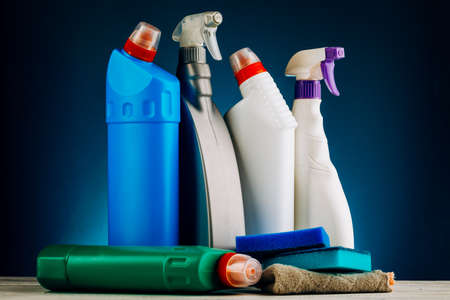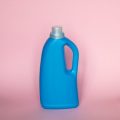Understanding Common Household Chemicals in the UK
When striving for a greener British home, it is vital to first recognise the types of chemicals commonly found in everyday household products. From kitchen cleaners and laundry detergents to air fresheners and bathroom disinfectants, UK homes often contain a complex mix of substances designed to clean, sanitise, and deodorise. However, many of these products include potentially harmful ingredients such as ammonia, chlorine bleach, phthalates, parabens, and volatile organic compounds (VOCs), which can impact both indoor air quality and personal health.
A key step towards reducing chemical exposure is developing the habit of careful label reading. In the UK, manufacturers are required by law under the Classification, Labelling and Packaging (CLP) Regulation to provide clear information about hazardous substances. Look out for pictograms, hazard statements, and ingredient lists, all of which offer valuable insights into what you are bringing into your home. It’s important to familiarise yourself with terms like ‘fragrance’, ‘preservative’, or ‘surfactant’, as these often mask a variety of synthetic chemicals.
The UK also has unique legislative protections that set it apart from other countries. For example, the UK REACH (Registration, Evaluation, Authorisation and Restriction of Chemicals) regulation places restrictions on certain harmful chemicals in consumer products. While this legislation offers some reassurance, not all potentially hazardous ingredients are fully regulated or banned—making informed choices at the point of purchase essential for anyone committed to reducing their household chemical footprint.
2. Health and Environmental Impacts of Household Chemicals
Household chemicals, ranging from cleaning sprays to laundry detergents, are a staple in British homes. However, mounting evidence highlights their impact on both personal wellbeing and the UK’s unique environment. According to Public Health England, frequent exposure to volatile organic compounds (VOCs) commonly found in air fresheners and cleaning agents can exacerbate respiratory issues, particularly in children and the elderly. The British Lung Foundation reports that indoor air pollution—much of which is linked to household chemical use—is responsible for thousands of premature deaths annually.
Impact on Personal Wellbeing
Scientific studies have documented correlations between the use of certain household products and increased risks of asthma, allergies, and skin irritation. A 2020 survey by Asthma UK found that 42% of people with asthma experienced worsened symptoms after exposure to common cleaning products. The table below summarises key health risks associated with everyday chemicals:
| Chemical Category | Common Sources | Potential Health Risks (UK Data) |
|---|---|---|
| VOCs | Sprays, polishes, air fresheners | Asthma triggers, headaches, dizziness (British Lung Foundation) |
| Phthalates | Scented products, plastics | Hormonal disruption, developmental effects (Public Health England) |
| Chlorine Compounds | Bleach-based cleaners | Skin irritation, respiratory problems (NHS) |
| Ammonia | Glass and floor cleaners | Eye/skin irritation, breathing difficulties (DEFRA) |
Environmental Impact in the UK Context
The environmental footprint of household chemicals extends beyond human health. Runoff from cleaning products can enter British waterways, affecting local wildlife and water quality. The Environment Agency has raised concerns about phosphates from detergents contributing to eutrophication in rivers such as the Thames and the Severn. Additionally, microplastics from abrasive cleaning agents accumulate in marine environments around the UK coastline.
Key Environmental Findings:
- Eutrophication: Over 60% of monitored rivers in England exceed recommended phosphate levels due to household chemical runoff (Environment Agency, 2022).
- Aquatic Toxicity: Certain surfactants and biocides persist in water systems, posing risks to native fish populations and aquatic plants.
- Air Quality: VOC emissions from domestic products contribute significantly to urban smog episodes in cities like London and Manchester (DEFRA Air Quality Report 2023).
Towards a Greener Home
The evidence is clear: reducing reliance on conventional household chemicals not only supports personal health but also safeguards local British ecosystems. By understanding these impacts—supported by robust UK-specific data—households can make informed choices for a greener future.

3. Practical Strategies for Minimising Chemical Use
Cleaning the British Way: Eco-Friendly Alternatives
Traditional British homes often rely on powerful cleaning agents, but many of these products contain harsh chemicals that can harm both your health and the environment. Instead, opt for simple alternatives such as white vinegar, bicarbonate of soda (baking soda), and lemon juice. These staples are widely available in UK supermarkets and have proven efficacy against common household grime. For instance, a mixture of vinegar and water makes an effective window cleaner, while bicarbonate of soda can tackle stubborn stains in sinks and bathtubs. Consider switching to reusable cleaning cloths rather than disposable wipes to further reduce waste.
Greener Laundry Practices
The average British household does several loads of laundry each week, often using detergents laden with synthetic fragrances and optical brighteners. To reduce chemical exposure, choose fragrance-free or eco-labelled detergents certified by organisations like the EU Ecolabel or the Soil Association. Washing clothes at lower temperatures (30°C) not only saves energy but also decreases the need for strong chemicals to remove stains. Additionally, try using natural stain removers such as pure soap flakes or pre-treating marks with diluted white vinegar.
Sustainable Personal Care Choices
Personal care products—shampoos, soaps, and deodorants—are another hidden source of household chemicals. Switch to British-made natural brands with transparent ingredient lists and certifications such as Cruelty Free International or The Vegan Society. Solid shampoo bars and refill stations are increasingly popular across the UK, helping you cut down on plastic packaging and unnecessary additives. When possible, avoid products containing parabens, phthalates, or synthetic perfumes; instead, look for plant-based ingredients and essential oils.
Adopting Refillable & Bulk Solutions
Many local zero-waste shops across Britain now offer refillable options for cleaning liquids, washing-up liquid, and even personal care products. Bring your own containers to reduce single-use plastic waste and control what ingredients enter your home environment. Buying in bulk also tends to be more economical and environmentally friendly over time.
Key Takeaway
By making small yet deliberate changes in everyday routines—such as choosing eco-friendly alternatives, lowering laundry temperatures, selecting certified products, and supporting refill initiatives—British households can significantly reduce their reliance on harsh chemicals. These steps not only promote a healthier indoor environment but also contribute positively to the wider community’s sustainability efforts.
4. Greener Alternatives and Where to Find Them Locally
Transitioning to a greener British home is increasingly accessible thanks to the growing range of natural, eco-friendly products available across the UK. Supermarkets, high street shops, and local independent retailers now stock a variety of alternatives designed to reduce household chemical use without compromising on effectiveness. Here’s a practical guide to help you identify safer products and trusted labels when shopping locally.
Common Eco-Friendly Household Products in the UK
| Product Type | Eco-Friendly Alternative | Where to Buy | British-Made Options |
|---|---|---|---|
| Laundry Detergent | Plant-based, biodegradable detergents (fragrance-free) | Tesco, Sainsbury’s, Waitrose, The Co-operative | Ecover, Bio-D |
| Multi-Purpose Cleaner | Refillable surface sprays with essential oils | Holland & Barrett, Marks & Spencer, Local refill shops | Method (UK factory), Delphis Eco |
| Washing-Up Liquid | SLS-free, phosphate-free washing-up liquids | Morrisons, Ocado, Zero-waste stores | Bio-D, Miniml |
| Bathroom Cleaners | Lemon or vinegar-based cleaning solutions | Aldi (ECO range), B&Q, Local markets | Ecozone, Astonish |
| Toilet Paper & Tissues | Bamboo or recycled paper products (unbleached) | Lidl, Asda, Planet Organic | The Cheeky Panda, Who Gives a Crap (UK distribution) |
| Dishwasher Tablets | Phosphate-free tablets with soluble wrappers | Iceland Foods, Boots UK, Ethical Superstore online | Ecover, Smol (subscription) |
| Floor Cleaners | Citrus or plant-based floor cleaners (concentrated refills) | Poundland (eco ranges), John Lewis & Partners, Local hardware shops | Kinn Living, Delphis Eco |
| Air Fresheners | Naturally-scented soy candles or reed diffusers (no aerosols) | Sainsbury’s Home section, The Range, Etsy UK sellers | Celtic Candles Co., St. Eval Candle Company (Cornwall) |
Trusted Eco Labels to Look For in the UK
- The EU Ecolabel: Identifies products meeting strict environmental criteria for reduced toxicity and sustainability.
- The Vegan Society Trademark: Guarantees that no animal-derived ingredients are present—common on cleaning products and toiletries.
- Cruelty Free International Leaping Bunny: Assurance that neither the product nor its ingredients have been tested on animals.
- The Soil Association Organic Standard: Often found on personal care items like soaps and shampoos; certifies organic sourcing and production methods.
How to Support Local and Reduce Packaging Waste
- Visit zero-waste or refill shops: Bring your own containers and refill everything from laundry liquids to washing-up soap. Use platforms such as Zero Waste Near Me to find your nearest store.
- Select British-made brands: Favouring local brands not only supports domestic businesses but reduces emissions associated with imports.
A Data-Driven Perspective: Are Green Alternatives Effective?
The most recent Which? consumer report (2023) found that leading eco-friendly cleaning products performed nearly as well as conventional ones for everyday household tasks while dramatically reducing exposure to irritants and synthetic chemicals.
Selecting greener alternatives—and knowing where to source them locally—empowers British households to reduce their environmental impact while maintaining healthy living spaces. By looking for trusted certifications and supporting local producers, you can be confident your choices are both sustainable and effective.
5. Safe Storage and Disposal of Household Chemicals
Proper storage and disposal of household chemicals are crucial steps in creating a greener British home. Not only do they protect your family’s health, but they also help minimise environmental harm. Following best practices, as recommended by UK authorities, ensures that hazardous substances don’t end up contaminating our local ecosystems or posing risks to refuse workers.
Best Practices for Chemical Storage
When it comes to storing cleaning agents, paints, solvents, and other potentially hazardous products, always keep them in their original containers with labels intact. Store these items in a cool, dry place out of reach of children and pets—preferably in a locked cupboard or shed. Never decant chemicals into food or drink containers, as this can lead to accidental ingestion. Additionally, check containers regularly for leaks or signs of deterioration; if you find any issues, address them immediately by following the appropriate disposal procedures.
Disposal According to UK Guidelines
The UK has strict regulations governing the disposal of household chemicals. Do not pour chemicals down sinks, toilets, or drains, as this can pollute water supplies and damage local wildlife. Instead, refer to your local council’s website for detailed guidance on how to dispose of specific items safely. Many councils offer dedicated recycling schemes and household chemical collection points for substances such as paint, batteries, pesticides, and cleaning fluids.
Council Recycling Schemes & Collection Points
Most local authorities provide access to Household Waste Recycling Centres (HWRCs), where you can safely deposit unwanted chemicals. These centres accept various materials—from solvents and oils to batteries and fluorescent tubes—and ensure that they are handled by professionals in accordance with environmental regulations. Some councils also run periodic collection events for hazardous waste; signing up for email updates from your local authority will help you stay informed about upcoming opportunities.
Reducing Risk and Environmental Impact
By adhering to these storage and disposal guidelines, you not only reduce the risk of accidents at home but also contribute to broader efforts to protect Britain’s natural habitats. Always read product labels carefully for specific disposal instructions and never hesitate to contact your local council if you are unsure about the correct procedure. Responsible handling of household chemicals is a key element of sustainable living in the UK—and an important step towards a healthier home and environment.
6. Building a Sustainable Routine in the British Home
Establishing sustainable, eco-friendly habits is essential for reducing household chemicals and maintaining a greener home. Adapting green routines to fit with British lifestyles is entirely achievable, whether you live in a city flat or a countryside cottage. Here’s how to build lasting habits that benefit both your household and the environment.
Switching to Reusable Products
One of the simplest ways to cut down on chemical use is by replacing single-use items with reusable alternatives. In British homes, this could mean using cloth shopping bags instead of plastic carriers, microfibre cleaning cloths in place of disposable wipes, and glass or stainless steel containers for food storage. Investing in quality, reusable products not only reduces waste but also lowers long-term costs.
Developing Efficient Cleaning Routines
A well-structured cleaning schedule can help minimise unnecessary chemical exposure while ensuring your home stays spotless. Consider adopting a weekly rota—for example, dusting on Mondays, vacuuming on Wednesdays, and deep-cleaning the kitchen at weekends. Use natural or low-toxicity products where possible; white vinegar, bicarbonate of soda, and lemon juice are versatile staples that suit most British cleaning needs.
Involving the Whole Household
Making sustainability a family affair increases success. Encourage everyone in your home to take part—children can learn about sorting recycling correctly, while adults can share tips on conserving water or energy during daily tasks. Posting reminders near bins or cleaning cupboards can reinforce these new habits.
Shopping Smart and Locally
Supporting local businesses and farmers’ markets helps reduce packaging waste and supports the UK’s eco-conscious economy. Choose products with minimal packaging and look out for British-made goods that prioritise sustainability. Many supermarkets now offer refill stations for common household items such as washing-up liquid and laundry detergent—make use of these to further limit plastic waste.
Reviewing Progress Regularly
Assess your sustainable routine every few months. Are there areas where more environmentally friendly swaps could be made? Are certain habits proving difficult to maintain? Adjust your approach as needed—sustainability is an ongoing journey that adapts with your lifestyle changes over time.
By gradually integrating these practical steps into your daily life, you’ll cultivate a greener home that aligns with British values of stewardship and community responsibility—making a measurable difference for both your household and the wider environment.


